Australian Half Penny date varieties
1913
John Dean described four varieties of the 1913 halfpenny but one of those was just a die crack with the other three differing in the width of the date. Robert Clarke listed a "wide date" variety although his measurement of 6mm for the width is rather short of the mark. My own investigations show three varieties differing in the width of the date and the orientation of the digits suggesting multiple master tools for 1913.
The differences in position and orientation of the date digits suggest that something
rather unusual happened in 1913. To strike over two million coins, at least 10 and
perhaps as many as 40 working dies would have been needed, with the most likely
number being in the range 20 to 25. Clearly the date was not hand-stamped onto each
working die for if that had been done, no two working dies would have been exactly
alike and we would observe a much greater range of varieties.
Therefore the working dies must have been punched from fully-dated derivative master tools and the fact that we can see three different date configurations means there must have been at least three such separately-prepared dies. This raises the question of why three or more tools were prepared when one master die would have been sufficient, as it was in other years (1911, 1912, 1914, 1915 and so on).
Type 1
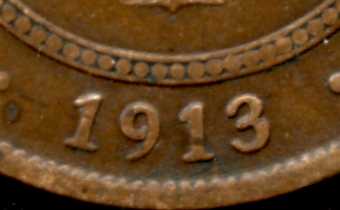 Normal, narrow date spanning 15 rim denticles.
Normal, narrow date spanning 15 rim denticles.Type 2
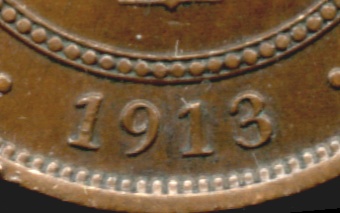 9 leans right, 1 and 3 further apart but same overall width as previous variety.
9 leans right, 1 and 3 further apart but same overall width as previous variety.
Type 3
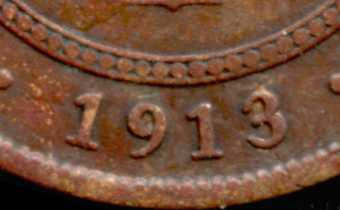 Wider date spans 16 rim denticles.
Wider date spans 16 rim denticles.
1919
John Dean reported two varieties of this coin, distinguished by the position and orientation of the final 9 in the date. Clarke also described two varieties, a normal and a wide date form. These two authors are almost certainly referring to the same coins but the dates are actually the same width, 6.5mm.
Type 1
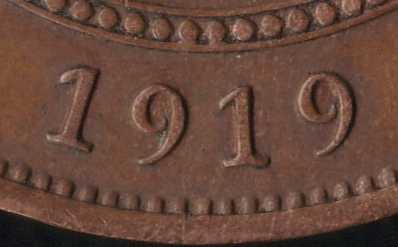
This is the more common configuration. The second 9 is fairly upright.
Type 2
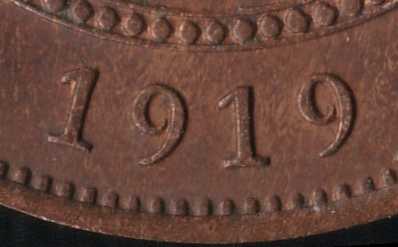 Less common, this variety has the second 9 leaning somewhat to the left. Roughly
one coin in five has this configuration.
Less common, this variety has the second 9 leaning somewhat to the left. Roughly
one coin in five has this configuration.
Type 3
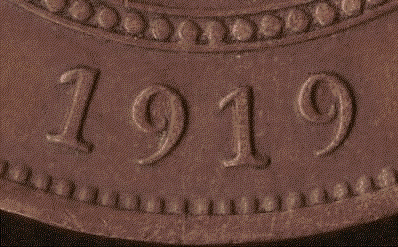 This animation shows that the only difference between the two dates is the orientation
of the final 9.
This animation shows that the only difference between the two dates is the orientation
of the final 9.
Other Australian coins varieties
Florins Date varietiesMintmark variations of the 1942 San Francisco florin
Florin 1953 varieties
Letter-shape variations of George V pennies
Penny Date varieties
20 cents 1966 varieties

